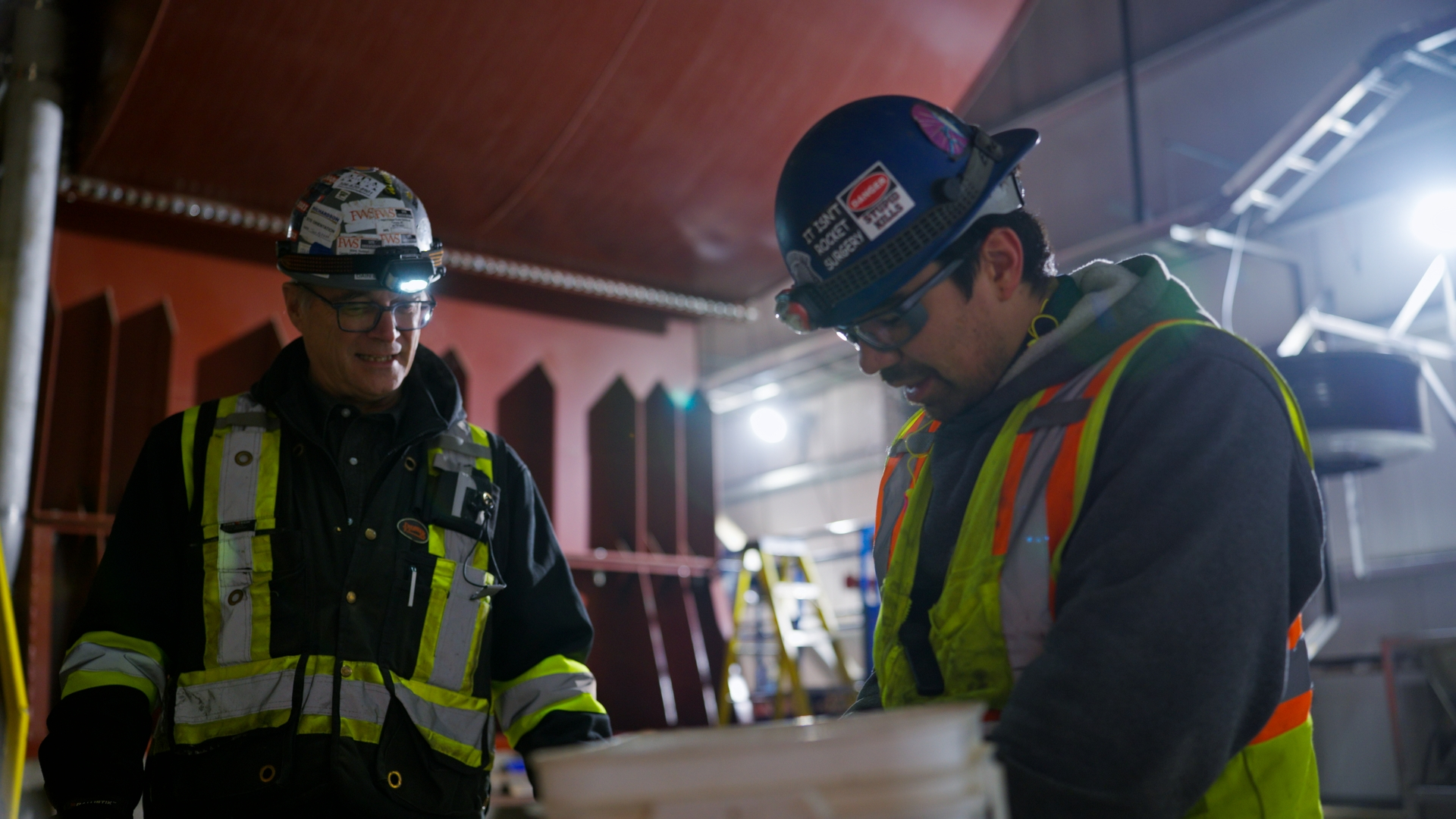

The construction industry is facing an unprecedented challenge: a widening skills gap driven by the retirement of seasoned professionals and the struggle to adequately train and retain new talent. The ag-industrial construction sector, in particular, has felt the impact. As a generation of experts steps away, the industry risks losing the hard-earned knowledge that has been passed down over decades. At FWS, addressing this challenge isn’t just a priority, it’s a core part of how we ensure long-term success and quality for our projects and clients.
The Construction Industry Institute reports that the workforce in the construction sector is aging, with up to 41% of the workforce expected to retire within the next decade. This shift comes at a time when training programs are often underfunded or lack the resources needed to build the next generation of skilled workers. The result is a shortage not just in numbers but in the quality of expertise required for complex projects. In ag-industrial construction, where precision and integrated project management are key, this knowledge gap poses unique challenges.
One of FWS’s most effective strategies for closing the skills gap has been fostering a culture of mentorship. Senior team members, many of whom began their careers on construction sites before moving into roles in engineering, project management, and leadership, are actively involved in guiding newer employees. “We understand that real expertise isn’t just taught, it’s shared through experience,” says Nathan Hornick, Managing Director, FWS Liquid and Gas Handling. “Our senior staff take pride in passing down what they know, making sure the next generation is prepared to handle the intricacies of our industry.”
Mentorship at FWS isn’t just a casual conversation; it’s woven into project work and daily interactions. Engineers and field workers eat lunch together, discuss challenges on-site, and collaborate in ways that go beyond project meetings. This approach ensures that practical, lived experience is passed along, enriching the knowledge base of the entire team.
Training at FWS goes beyond the standard onboarding and safety protocols. The company invests in comprehensive training programs that blend technical skill-building with problem-solving workshops, emphasizing how to adapt to the dynamic nature of ag-industrial projects. The training focuses not just on what to do, but why each step matters, ensuring that employees develop a holistic understanding of their roles within the bigger picture of a project.
Kebin Chody, VP of Operations, explains, “We don’t just want someone to know how to operate a piece of machinery or follow a blueprint. We want them to understand how their work affects the entire project. That’s the kind of knowledge that keeps projects running smoothly and efficiently.”
While mentorship and training lay the groundwork, FWS also leverages innovation to maintain and distribute knowledge. This includes documenting best practices, capturing project data, and creating a digital library of insights and lessons learned from past projects. These resources are readily accessible to team members, ensuring that even as new employees come on board, they have access to the wisdom accumulated over years of field experience.
Phil Watts, Managing Director of Bulk Material Handling, notes, “We’re seeing that a blend of traditional mentorship and technology-driven learning is what truly preserves knowledge. It’s not about replacing expertise with tech, but using tech to make that expertise more accessible.”
Preserving expertise isn’t just an internal win, it directly impacts clients. Industrial projects require precise, efficient, and coordinated efforts. Clients have shared stories of projects they’ve seen elsewhere suffering from delays and quality issues due to inexperienced teams lacking cohesive knowledge. At FWS, clients can be confident that their projects are supported by a team that doesn’t just understand construction but has the combined knowledge to anticipate challenges and innovate solutions that keep projects on track.
By prioritizing mentorship, robust training, and the smart use of technology, FWS is ensuring that the knowledge needed to handle complex Industrial projects doesn’t retire with its most seasoned professionals. Instead, it’s carried forward, shared, and evolved, creating a team that is prepared to meet today’s demands and adapt to tomorrow’s challenges.
Sources: